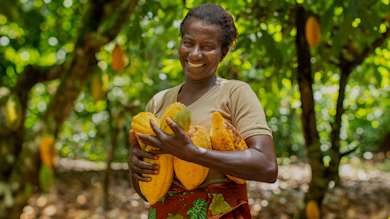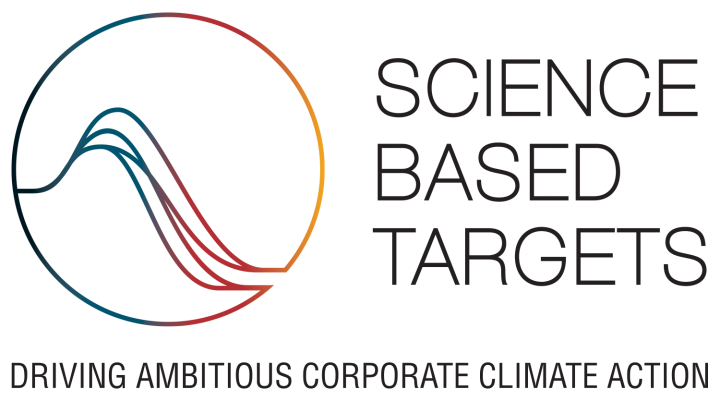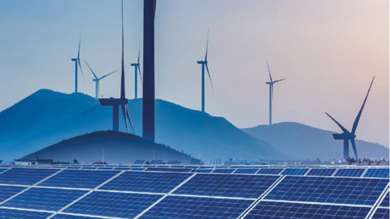
Products for a fairer world
Discover how we’re helping Fairtrade farmers to build lower carbon futures.

It cannot be overstated: climate change is real and life-threatening. The science is clear and indisputable. Climate is already affecting the foods we all rely on and the people who produce them. In successive years our members have voted for us to formally recognise the climate emergency then accelerate our response. This plan sets out how we intend to do so.
In 2019 we followed best practice in climate target-setting, steered by the Science-Based Targets initiative (SBTi). At this time, we set targets to reduce our Scope 1, 2 and 3 emissions by 2025 along different pathways.
We have met these initial targets several years early and have now committed to new, more ambitious targets, in line with the SBTi Net-Zero Standard. These new targets are aligned to limiting global temperature rise to no more than 1.5°C and have been validated against the most ambitious designation available through the SBTi process.
Following the latest SBTi guidance, we have also set detailed target pathways which break down our 'energy and industry' and 'forestry, land use and agriculture' (FLAG) emissions and our pathway to reach Net Zero.
Energy/industrial
FLAG
Energy/industrial
FLAG
*Target includes FLAG emissions and removals.

Our Climate Plan sets out our strategic approach to achieving our climate ambitions, including how we have evolved these targets over time. We are continuing to prioritise action where we can make the most impact, as well as placing retailer and supplier collaboration and people at the heart of our plan.
For more information, please download the full plan.
Annual progress against our Climate Plan and examples of the actions that we are taking are included in our annual Co-operate Report.


We campaign for climate justice to advocate for our global communities on the front line of the climate crisis. To find out more, please read our Climate Justice for People and Planet report below.
We all have an essential part to play in tackling the climate crisis. That's why we're committed to taking climate action and restoring nature to create a fairer planet for future generations.
As part of a 3-year partnership, Co-op and RSPB will be working together to support the ongoing restoration and long-term management of degraded peatlands in the UK. Peatlands are the earth’s greatest carbon store and are vital in providing habitats for nature and reducing flood risk. However, almost 80% of UK peatlands are degraded, causing them to emit their stored carbon back into the atmosphere. Co-op’s initial investment of £1 million in 2023, funded through sales of compostable carrier bags*, will help avoid the emission of the equivalent of 40,000 tonnes of CO2 across two sites. Further sites are to follow at RSPB reserves in Scotland. To learn more, click here.
*The Governments introduced a levy on every sale of carrier bags in England, Scotland and Wales to help reduce the impact of single-use carrier bags. Co-op donates the profits from the sale of our compostable bags to good causes across the UK including Local Community Fund which helps improve communities across the UK.


Learn how we’re encouraging businesses to use sustainable energy.